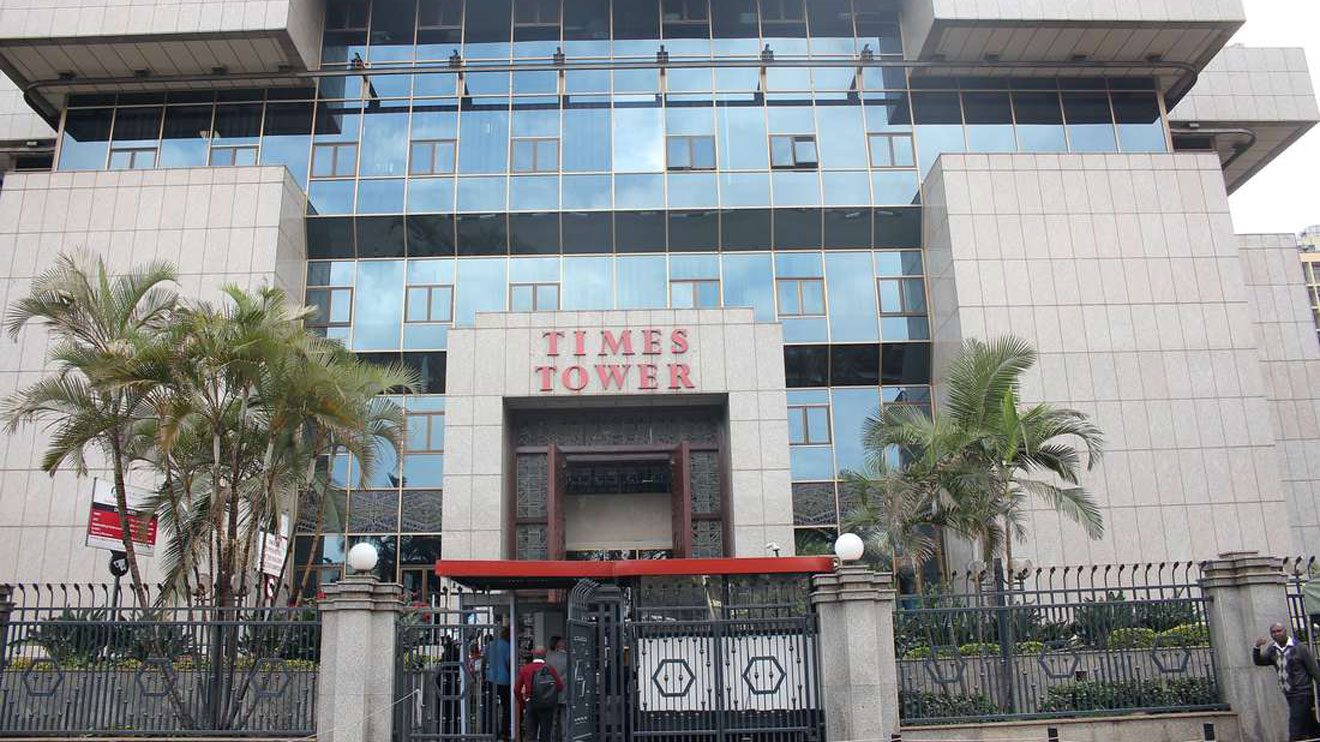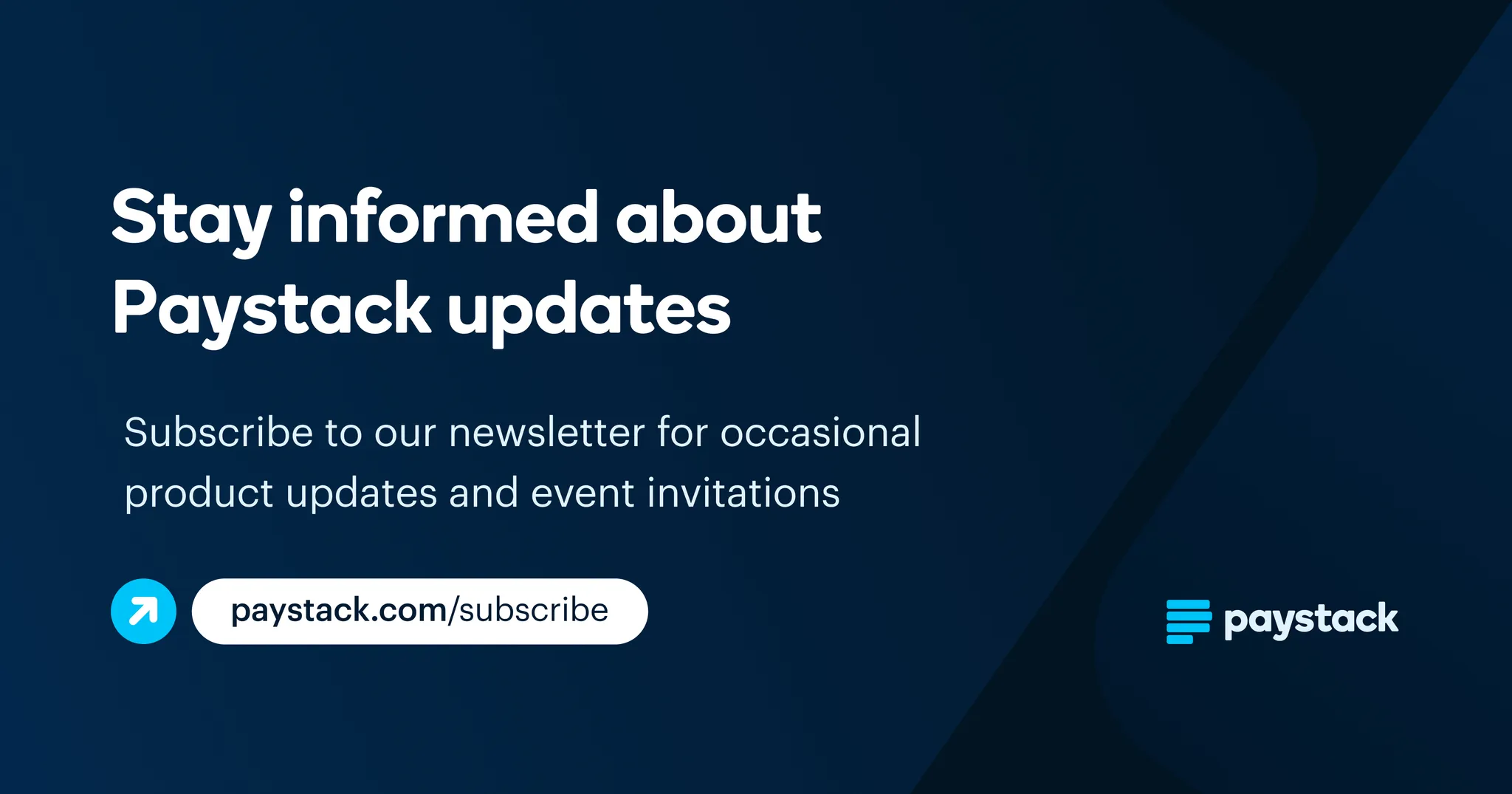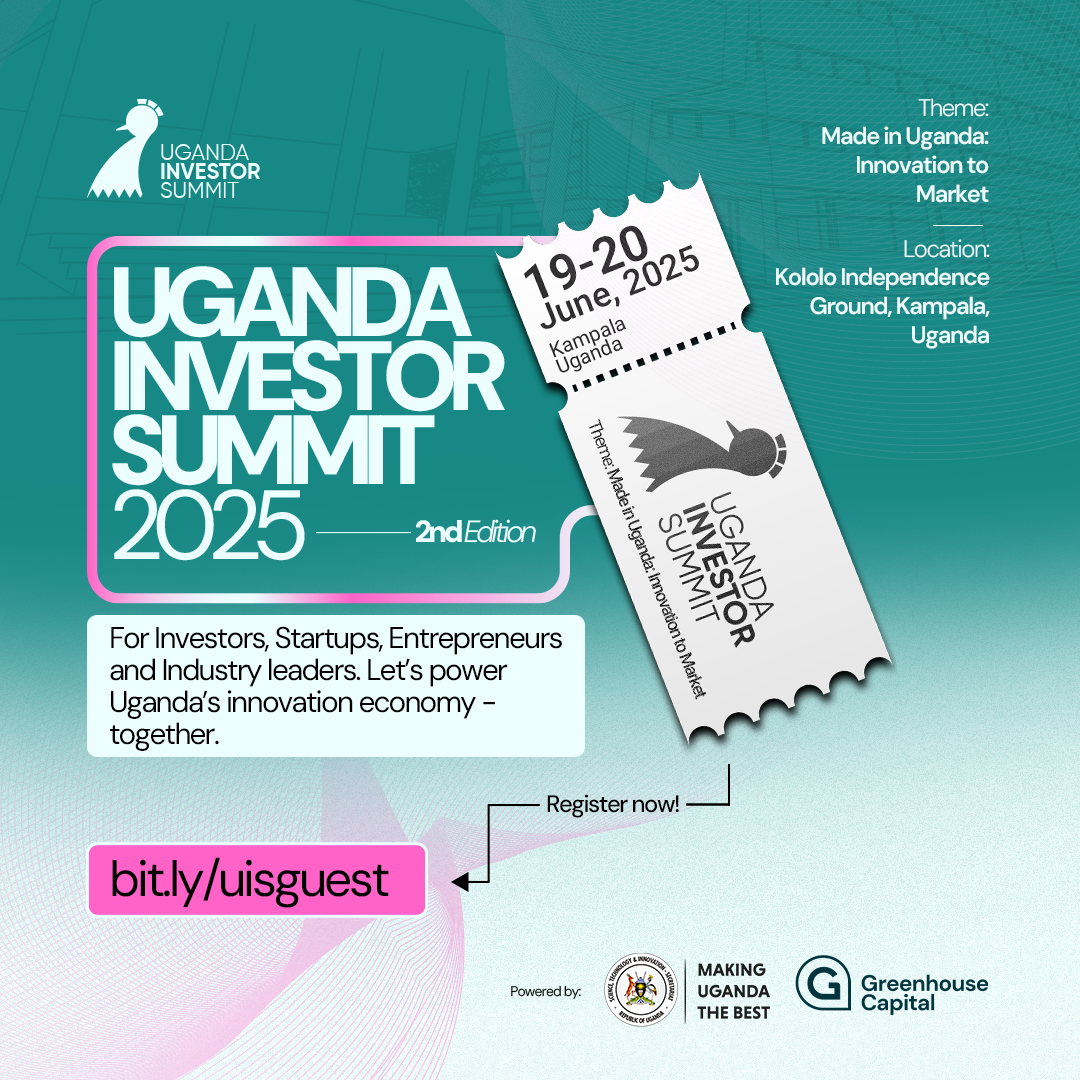Technology
👨🏿🚀TechCabal Daily – Safaricom in anti-competitive row
In partnership with Lire en Français اقرأ هذا باللغة العربية Good morning! We have a question for you: what is the cost of privacy? Kenyans have been asking this as their tax authority explores new ways to access citizens data. PS: If youre at the Lagos Startup Expo today, come say hello! Ill be ...
TechCabal
published: Jun 18, 2025



Good morning! 
We have a question for you: what is the cost of privacy? Kenyans have been asking this as their tax authority explores new ways to access citizens’ data.
PS: If you’re at the Lagos Startup Expo today, come say hello! I’ll be roaming around the booths.
Let’s get into today’s dispatch!

Companies
Safaricom accused of anti-competitive practices in Ziidi money market fund dispute

Safaricom has been called out for giving Ziidi preferential treatment.
Here’s what to know: Ziidi is a money market product, launched by Safaricom, that enables M-PESA (another Safaricom subsidiary) customers to invest in a money market fund. Customers earn interest by investing funds from their M-PESA wallet into the Ziidi account. Ziidi now counts over one million users with $46 million in assets.
Now, the tea : A fund manager sent a letter to the Competition Authority of Kenya (CAK) requesting that Safaricom, which controls over 91% of mobile money services in Kenya, be investigated for allegedly distorting the market by giving Ziidi free access to its M-PESA infrastructure. What they’re saying is that because Safaricom (M-PESA) does not charge Ziidi transaction fees, like it does other MMFs, these other funds have to charge users between $0.077 and $0.46 for deposits and withdrawals, while Ziidi users pay nothing.
: A fund manager sent a letter to the Competition Authority of Kenya (CAK) requesting that Safaricom, which controls over 91% of mobile money services in Kenya, be investigated for allegedly distorting the market by giving Ziidi free access to its M-PESA infrastructure. What they’re saying is that because Safaricom (M-PESA) does not charge Ziidi transaction fees, like it does other MMFs, these other funds have to charge users between $0.077 and $0.46 for deposits and withdrawals, while Ziidi users pay nothing.
Sounds good for Ziidi customers, but not so well for other money market fund players like Cytonn, CIC, and Britam.
“Why?” The complainant (Cytonn’s CEO Edwin Dande) claims Ziidi’s zero-rated M-PESA access gives it an unfair customer acquisition and retention edge, even when competing funds offer similar or better returns. They claim that this act limits market access for them and distorts competition in the retail investment market.
So, what now? The complainant wants CAK to investigate this issue and take action by compelling Safaricom to begin charging transaction fees on Ziidi or extending M-PESA access to all market players.
ICYMI: In 2024, the Common Market for Eastern and Southern Africa (COMESA) Competition Commission investigated American Tower Corporation (ATC) and Airtel Africa’s 2022 agreement. This agreement stated that Airtel will use ATC’s sites in Nigeria, Kenya, Niger, and Uganda to support its network rollout. This arrangement was tagged as anti-competitive and capable of stifling competition as it was viewed as an attempt to prevent other telecom operators from accessing these infrastructure.
Zoom out: If a dominant player can quietly tilt the playing field in favour of its subsidiaries, what’s left of fair competition? Could this be the beginning of a future where platform power decides who wins? For now, all eyes are on CAK… and Safaricom.
Save more on every NGN transaction with Fincra

Stop overpaying for NGN payments. Fincra’s fees are more affordable than other payment platforms for collections & payouts. The bigger the transaction, the more you save. Create a free account in 3 minutes and start saving today.
Policy
Parliament rejects KRA’s plan to access personal data of Kenyans

Would you be comfortable if your country’s tax agency had unrestricted access to your data: how much you make, what you do with your money, and what you spend on (and pay taxes for)?
That was the tradeoff buried in a clause Kenya’s Treasury proposed in the Finance Bill: faster tax enforcement in exchange for deep access to private data. Under pressure to raise KES 30 billion ($232 million) without introducing new taxes, the government is desperate to increase tax compliance among businesses and individuals.
But lawmakers in Kenya’s Parliament weren’t convinced. After a thorough review process, the Parliament rejected a clause from Kenya’s Finance Bill that would have granted the Kenya Revenue Authority (KRA) the right to dig into the data of Kenyans and businesses without a court order.
The proposal would have made KRA, the country’s taxman, near omniscient. With this oversight, the agency would have been able to sniff out hidden income of both companies and individuals, and tax accordingly. In cases of bank disputes, for example, when a bank files an appeal, KRA would have had the power to freeze accounts before any ruling had been made.
The law would have also given the taxman access to sensitive business information, which is tricky for consumer protection.
Yet, the KRA saw the clause as a shortcut to stronger enforcement. With direct access to bank records, mobile transactions, and company systems, it could work faster, avoid court delays, and lock in more revenue.
Know more: In another clause reviewed by Parliament, the KRA also proposed the power to seize taxpayer funds even while legal appeals were still underway. That means if you challenged a tax assessment in court, your bank account could be frozen before the case was even heard. This was rejected too.
Parliament made clear that fixing the country’s deficit can’t come at the cost of constitutional rights. Kenyans’ data are safe for now.
Order physical Paga cards, spend with confidence.

Tired of declined payments? Avoid the side-eyes at the cash till with Paga’s physical prepaid card. Designed to give you control, security, and ease. Fund and spend with confidence. Get yours today!.
Economy
TransUnion partners with MTN to issue credit rating by assessing people’s phone calls

Credit scoring is an interesting topic in Africa. The infrastructure around solid credit rating in most parts of the continent is frail and lacking. Yet, Africans lack access to credit. It’s like a chicken-and-egg problem: lenders want to give Africans credit, but they can’t effectively score them to guess who would pay back the loans 100% of the time.
Today, most lenders use alternative data to assess creditworthiness. They check things like customers’ mobile phone usage, utility payments, transaction history, and borrowing history—an information often shared among lenders. But the system remains flawed, as many creditworthy people get low or no scores simply due to limited data.
Private organisations and lenders have rallied and tried different approaches. We’ve seen Nigeria’s LendSqr, trying to use AI to analyse borrowers’ faces and voices to determine if they’ll pay back. But even more interesting, TransUnion, a South African private credit bureau, wants to use call data records for this.
In partnership with MTN and its API platform, Chenosis, TransUnion will score South Africans based on how often they make mobile phone calls, how long they last, and who they make these calls with. With this approach, the credit bureau hopes to cater to previously excluded non-digitally native people.
However, people now use apps like WhatsApp to make calls, which don’t appear in traditional call data. That means large groups may still be left out of TransUnion’s new plan. There are also concerns about how personal data is collected, who sees it, and whether it’s kept safe.
Still, because the formal credit system locks so many people out, lenders are forced to find new ways. Whether this works depends on how fair, accurate, and practical it turns out to be.
Stay up to date with the latest Paystack news!

Subscribe to Paystack for a curated dose of product updates, insights, event invites and more. Subscribe here →
Startups
South African startup raises $1.8m to power AI electricity trading

Open Access Energy, a South African startup, has secured a $1.8 million seed funding round to scale its AI-powered digital infrastructure for electricity trading.
This funding was secured from E3 Capital, Equator VC and Factor E, and will be used in OAE’s product development as the company strives to meet the demand for a flexible energy infrastructure.
With South Africa’s renewable energy market valued at $100 billion, the competition among independent power producers is heating up. OAE aims to become the backbone for the renewable energy economy, serving global energy manufacturers and retailers in South Africa’s energy market, including Eskom Holdings SOC Ltd, Sasol Limited, and Enel Green Power RSA (Pty) Ltd.
If you don’t know Open Access Energy: The startup uses AI to create a digital infrastructure that allows users to buy and sell electricity. Its products, Amptera and EnergyPro, are software platforms that simplify the selling of electricity to customers by independent power producers through the power grid. This software tracks how much electricity is being used, predicts energy needs, and manages risks associated with energy generation and consumption loads.
In August 2024, the startup secured $750,000 from Factor E Ventures to improve the distribution and management of renewable energy in South Africa.
Zoom out: As South Africa’s energy market begins to open up to newer forms of energy (renewable energy), so is digitisation to ease the sale of this energy. OAE wants to make electricity trade as seamless and intelligent as purchasing data. And with this new funding secured, they just might.
Introducing, The Naira Life Conference by Zikoko

This August, the Naira Life Con will bring together wealth builders, entrepreneurs, financial leaders, and everyday Nigerians to share their experiences with earning, managing, and spending money. Think: bold conversations, immersive workshops, and content tracks that hand you a playbook for building real wealth. Get early bird tickets now at 30% off only for a limited time.
CRYPTO TRACKER
The World Wide Web3
Source:

|
Coin Name |
Current Value |
Day |
Month |
|---|---|---|---|
| $105,513 |
– 1.67% |
+ 2.44% |
|
| $2,539 |
– 1.88% |
+ 6.71% |
|
| $0.04709 |
+ 9.88% |
– 9.63% |
|
| $148372 |
– 3.21% |
– 8.86% |
* Data as of 06.45 AM WAT, June 18, 2025.
Events
- The 2nd Edition of the Uganda Investor Summit is here!
 Happening on June 19-20, 2025, the event will connect global investors with high-growth sectors, spotlighting innovation, partnerships, and investment-ready opportunities. Register here.
Happening on June 19-20, 2025, the event will connect global investors with high-growth sectors, spotlighting innovation, partnerships, and investment-ready opportunities. Register here.


Written by: Opeyemi Kareem and Emmanuel Nwosu
Edited by: Faith Omoniyi
Want more of TechCabal?
Sign up for our insightful newsletters on the business and economy of tech in Africa.
- The Next Wave: futuristic analysis of the business of tech in Africa.
- TC Scoops: breaking news from TechCabal
P:S If you’re often missing TC Daily in your inbox, check your Promotions folder and move any edition of TC Daily from “Promotions” to your “Main” or “Primary” folder and TC Daily will always come to you.

Stay in the loop
Never miss out on the latest insights, trends, and stories from Cedi Life! Be the first to know when we publish new articles by subscribing to our alerts.



